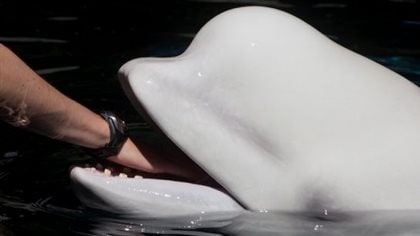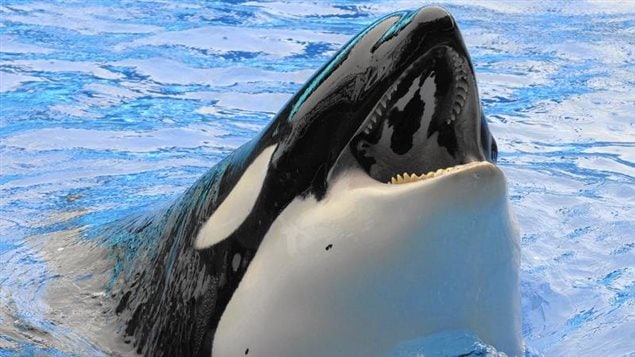SeaWorld Parks and Entertianment, the marine organization in the United States, announced this week it was ending its orca breeding program, and the acrobatic shows it staged for audiences. Now the 29 orcas, also known as killer whales, will remain in the company’s facilities, and become part of exhibits that feature encounters with these majestic creatures.
“This is a huge moral issue as well”
The move was met with mixed reaction, a step in the right direction for many, but not far enough for others. The company was featured in the damning documentary ‘Blackfish‘. It’s alleged treatment of its killer whales and the eventual death of one of their trainers by the Orca known as Tilikum, changed the way many people saw the captivity of these mammals.
In response to declining visits and its stock price, SeaWorld’s new CEO acted. It remains to be seen how the public will react, but here in Canada, the move to shutdown a similar venue near Niagara Falls, continues. Marineland, which opened in 1961 in the optimism and innocence of the time, is allegedly one of the worst marine facilities in North America, according to experts quoted on the Marineland Animal Defense website.
Senator Wilfred Moore is working to get a bill passed that would end the captivity of whales and dolphins in Canada. The mammals currently in captivity would remain where they are, but all breeding programs would be halted and any trade in reproductive materials would be outlawed.
ListenThe law would allow for ongoing research into the whales and dolphins currently in captivitiy and any future creatures that may be rescued, as may happen at Vancouver’s Aquarium.
Senator Moore said he was moved to act after viewing the documentary, ‘Blackfish’. He says, “when you see that and you realized what happened to Tilikum the whale, it’s just horrendous what they did to this creature.”
The bill is currently making its way through the Senate and will soon be referred to the Fisheries and Oceans committee for review. Senator Moore says he has solid support in the senate from members of the opposing parties and he hopes to see it become law before parliament recesses for the summer.

The Vancouver Aquarium, which will now be overseeing operations of Oceanograpfic in Valencia, Spain, will continue its programs.
Clint Wright, senior vice-president and GM of the Vancouver Aquarium, clarified with Metro News in Vancouver that it has not had an orca, or killer whale in captivity since 2001. Wright said the facility has been evolving and developed more educational presentations with its remaining captive sea mammals (several belugas, a Pacific white-sided dolphin and a false killer whale) “for a long time now”.
“I think, for us, [the SeaWorld announcement] was a little bit of a surprise because we didn’t have a lot of notice beforehand,” said Wright, “In terms of the work and research being done, it’s along the lines of what we committed to doing in 2006. So for us, it doesn’t change anything.”
But Wright is strong in his defense of breeding programs and keeping cetaceans in captivity, despite the growing debate and protests around the issues.
“I think it’s absolutely vital what we do,” he said. “It’s such a limited resource for researchers to work in a controlled setting and then apply that to the wild. We can’t ignore that. Belugas are facing issues like they’ve never had before. Connecting people to real issues in the Arctic is something we feel is really important.” Wright told Metro News.
Meanwhile the latest marine-life attraction at the base of the CN Tower in Toronto has been under scrutiny since it opened, but the protests and complaints do not seem to be affecting the public’s desire to visit Ripley’s Aquarium. It has an endagered Tiger shark on display.
In the case of Marineland, a Toronto Star newspaper investigation in 2012 raised awareness about the conditions and the practices at the park. The 2016 attendance may be a harbinger of what is to come.







For reasons beyond our control, and for an undetermined period of time, our comment section is now closed. However, our social networks remain open to your contributions.